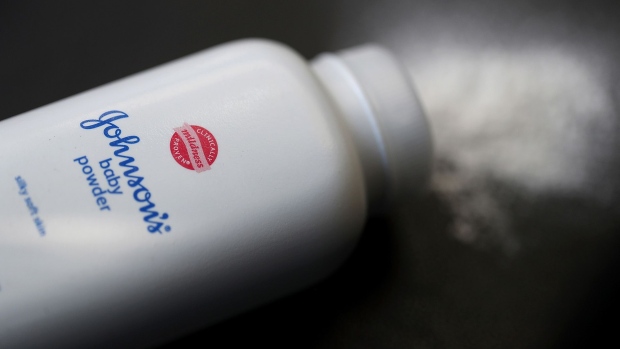Oct 15, 2021
J&J Baby Powder Claims Spur Bankruptcy Despite $25 Billion in Cash
, Bloomberg News

(Bloomberg) -- Only two companies in the world can pay their bills so reliably that they wield perfect credit ratings from both S&P and Moody’s. But one of them, Johnson & Johnson, just turned to bankruptcy court to deal with customers who argue the company’s products gave them cancer.
The consumer products giant put a unit into bankruptcy on Thursday because it owes at least $2 billion to people who say they got sick from J&J baby powder tainted with asbestos.
J&J is far from the usual user of Chapter 11 protection. It’s got about $25 billion of cash and a $10 billion line of credit -- easily enough to set up the proposed victims’ trust fund.
Yet, J&J isn’t the first solvent company facing asbestos claims to take this route. At least three others -- Georgia Pacific, Trane Technologies and Saint-Gobain Corp. -- are all trying the same strategy.
In a move known in legal circles as the “Texas Two-Step,” bankruptcy judges have allowed companies facing major litigation claims to scramble their corporate org charts and set up special units to house their asbestos liabilities using a business-friendly Texas law.
A company first moves its corporate charter to Texas, then splits in two: one part holds its healthy assets and businesses, while the other has the asbestos claims.
The latter then files for bankruptcy, putting all current and future asbestos litigation on hold until the company puts together a plan to pay them off. J&J did this in federal bankruptcy court in North Carolina, where two judges have ruled that the process is legitimate, over the objections of victims’ lawyers.
By joining this club, J&J gains all of the benefits of Chapter 11 with almost none of the drawbacks. The corporation itself isn’t in bankruptcy. Moody’s Investors Service says the company’s credit rating won’t be hurt by the filing.
J&J didn’t immediately return e-mails seeking a comment.
Microsoft Corp. is the only other company with the top credit ratings from both S&P and Moody’s.
©2021 Bloomberg L.P.